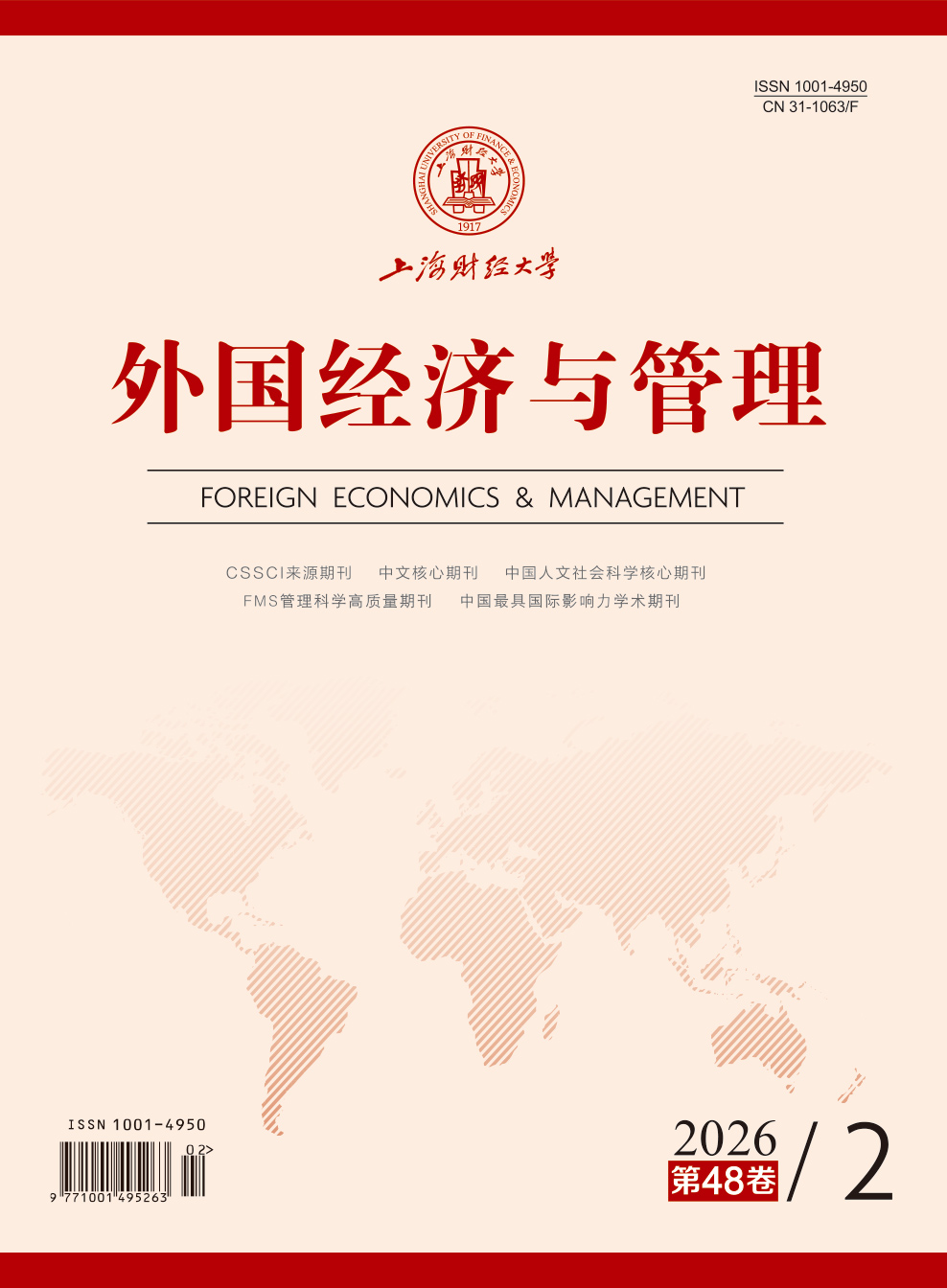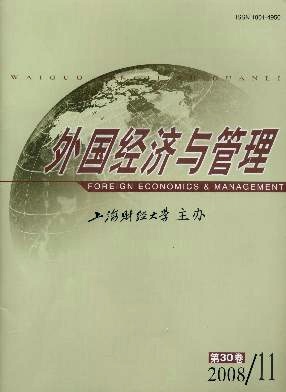国外诚信领导研究前沿探析
外国经济与管理 2008 年 第 30 卷第 11 期, 页码:27 - 34
摘要
参考文献
摘要
西方近几年兴起的诚信领导理论对于我国经济转型时期企业领导与下属间建立诚信关系具有借鉴意义。本文在梳理西方诚信领导相关文献的基础上,总结了诚信与诚信领导的内涵,阐述了诚信领导的测量问题,从诚信领导的来源、开发以及结果三个方面对诚信领导相关理论模型进行了述评,并对诚信领导的未来研究方向进行了展望。
[1]Avolio,B J,Gardner,W L,Walumbwa,F O,Luthans,F,and May,D R.Unlocking the mask:A look at the process by which au-thentic leaders impact follower attitudes and behaviors[J].Leadership Quarterly,2004,15:801-823.
[2]Trilling,L.Sincerity and authenticity[M].Cambridge,MA:Harvard University Press,1972.
[3]Erickson,R J.The importance of authenticity for self and society[J].Symbolic Interaction,1995,18(2):121-144.
[4]Deci,E L,and Ryan,R M.“What”and“why”of goal pursuits:Human needs and the self-determination of behavior[J].Psycholog-ical Inquiry,2000,11:227-268.
[5]Kernis,M H.Toward a conceptualization of optimal self-esteem[J].Psychological Inquiry,2003,14:1-26.
[6]Ryan,R M,and Deci,E L.On assimilating identities to the self:A self-determination theory perspective on internalization and integ-rity within cultures[A].in M R Leary,and J P Tangney(Eds.).Handbook of self and identity[C].New York:Guilford,2003.
[7]Avolio,B J,and Gardner,W L.Authentic leadership development:Getting to the root of positive forms of leadership[J].LeadershipQuarterly,2005,16:315-338.
[8]Luthans,F,and Avolio,B J.Authentic leadership development[A].in K S Cameron,J E Dutton,and R E Quinn(Eds.).Positiveorganizational scholarship[C].San Francisco:Berrett-Koehler,2003.
[9]Ilies,R,Morgeson,F P,and Nahrgang,J D.Authentic leadership and eudaemonic well-being:Understanding leader-follower out-comes[J].Leadership Quarterly,2005,16:373-394.
[10]Gardner,W L,Avolio,B J,Luthans,F,May,D R,and Walumbwa,F O.“Can you see the real me?”A self-based model of au-thentic leader and follower development[J].Leadership Quarterly,2005,16:343-372.
[11]May,D R,Chan,A,Hodges,T,and Avolio,B J.Developing the moral component of authentic leadership[J].Organizational Dy-namics,2003,32:247-260.
[12]Cooper,C,Scandura,T A,and Schriesheim,C A.Looking forward but learning from our past:Potential challenges to developingauthentic leadership theory and authentic leaders[J].Leadership Quarterly,2005,16:474-493.
[13]Shamir,B,and Eilam,G.“What’s your story?”A life-stories approach to authentic leadership development[J].Leadership Quar-terly,2005,16:395-417.
[14]Sparrowe,R T.Authentic leadership and the narrative self[J].Leadership Quarterly,2005,16:419-439.
[15]Walumbwa,F O,Avolio,B J,Gardner,W L,Wernsing,T S,and Peterson,S J.Authentic leadership:Development and valida-tion of a theory-based measure[J].Journal of Management,2008,34(1):89-126.
[16]Jensen,S M,and Luthans,F.Relationship between entrepreneurs’psychological capital and their authentic leadership[J].Journalof Managerial Issues,2006,18:254-273.
[17]Bass,B M,and Avolio,B J.Manual:The multifactor leadership questionnaire[M].Palo Alto,CA:Consulting Psychologist Press,1993.
[18]Knight,G A.Cross-cultural reliability and validity of a scale to measure firm entrepreneurial orientation[J].Journal of BusinessVenturing,1997,12:213-225.
[19]Victor,B,and Cullen,J B.The organizational bases of ethical work climates[J].Administrative Science Quarterly,1988,33:101-125.
[2]Trilling,L.Sincerity and authenticity[M].Cambridge,MA:Harvard University Press,1972.
[3]Erickson,R J.The importance of authenticity for self and society[J].Symbolic Interaction,1995,18(2):121-144.
[4]Deci,E L,and Ryan,R M.“What”and“why”of goal pursuits:Human needs and the self-determination of behavior[J].Psycholog-ical Inquiry,2000,11:227-268.
[5]Kernis,M H.Toward a conceptualization of optimal self-esteem[J].Psychological Inquiry,2003,14:1-26.
[6]Ryan,R M,and Deci,E L.On assimilating identities to the self:A self-determination theory perspective on internalization and integ-rity within cultures[A].in M R Leary,and J P Tangney(Eds.).Handbook of self and identity[C].New York:Guilford,2003.
[7]Avolio,B J,and Gardner,W L.Authentic leadership development:Getting to the root of positive forms of leadership[J].LeadershipQuarterly,2005,16:315-338.
[8]Luthans,F,and Avolio,B J.Authentic leadership development[A].in K S Cameron,J E Dutton,and R E Quinn(Eds.).Positiveorganizational scholarship[C].San Francisco:Berrett-Koehler,2003.
[9]Ilies,R,Morgeson,F P,and Nahrgang,J D.Authentic leadership and eudaemonic well-being:Understanding leader-follower out-comes[J].Leadership Quarterly,2005,16:373-394.
[10]Gardner,W L,Avolio,B J,Luthans,F,May,D R,and Walumbwa,F O.“Can you see the real me?”A self-based model of au-thentic leader and follower development[J].Leadership Quarterly,2005,16:343-372.
[11]May,D R,Chan,A,Hodges,T,and Avolio,B J.Developing the moral component of authentic leadership[J].Organizational Dy-namics,2003,32:247-260.
[12]Cooper,C,Scandura,T A,and Schriesheim,C A.Looking forward but learning from our past:Potential challenges to developingauthentic leadership theory and authentic leaders[J].Leadership Quarterly,2005,16:474-493.
[13]Shamir,B,and Eilam,G.“What’s your story?”A life-stories approach to authentic leadership development[J].Leadership Quar-terly,2005,16:395-417.
[14]Sparrowe,R T.Authentic leadership and the narrative self[J].Leadership Quarterly,2005,16:419-439.
[15]Walumbwa,F O,Avolio,B J,Gardner,W L,Wernsing,T S,and Peterson,S J.Authentic leadership:Development and valida-tion of a theory-based measure[J].Journal of Management,2008,34(1):89-126.
[16]Jensen,S M,and Luthans,F.Relationship between entrepreneurs’psychological capital and their authentic leadership[J].Journalof Managerial Issues,2006,18:254-273.
[17]Bass,B M,and Avolio,B J.Manual:The multifactor leadership questionnaire[M].Palo Alto,CA:Consulting Psychologist Press,1993.
[18]Knight,G A.Cross-cultural reliability and validity of a scale to measure firm entrepreneurial orientation[J].Journal of BusinessVenturing,1997,12:213-225.
[19]Victor,B,and Cullen,J B.The organizational bases of ethical work climates[J].Administrative Science Quarterly,1988,33:101-125.
引用本文
罗东霞, 关培兰. 国外诚信领导研究前沿探析[J]. 外国经济与管理, 2008, 30(11): 27–34.
导出参考文献,格式为:
下一篇:企业研发人员工作激励研究述评





 7180
7180  266
266

